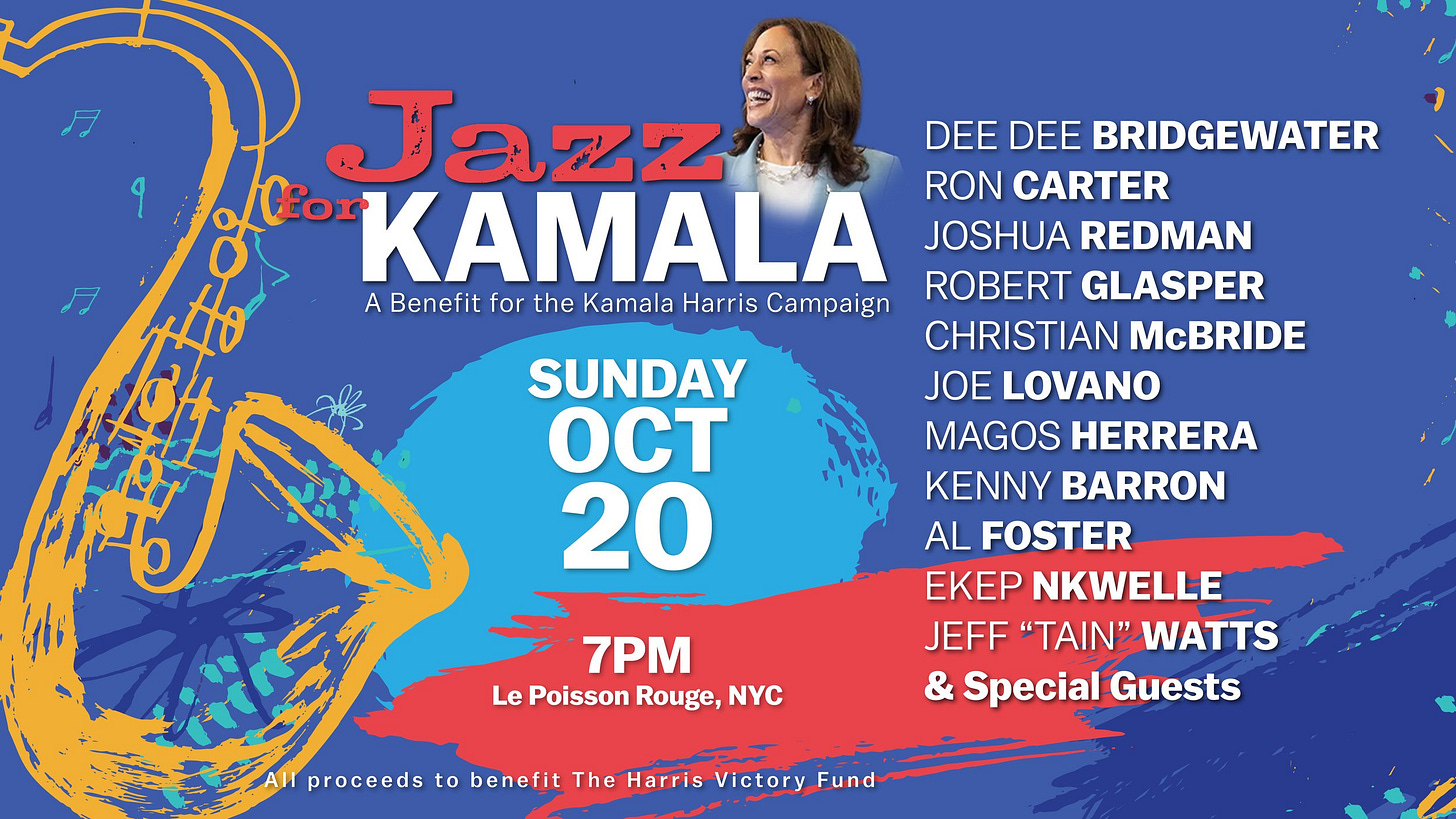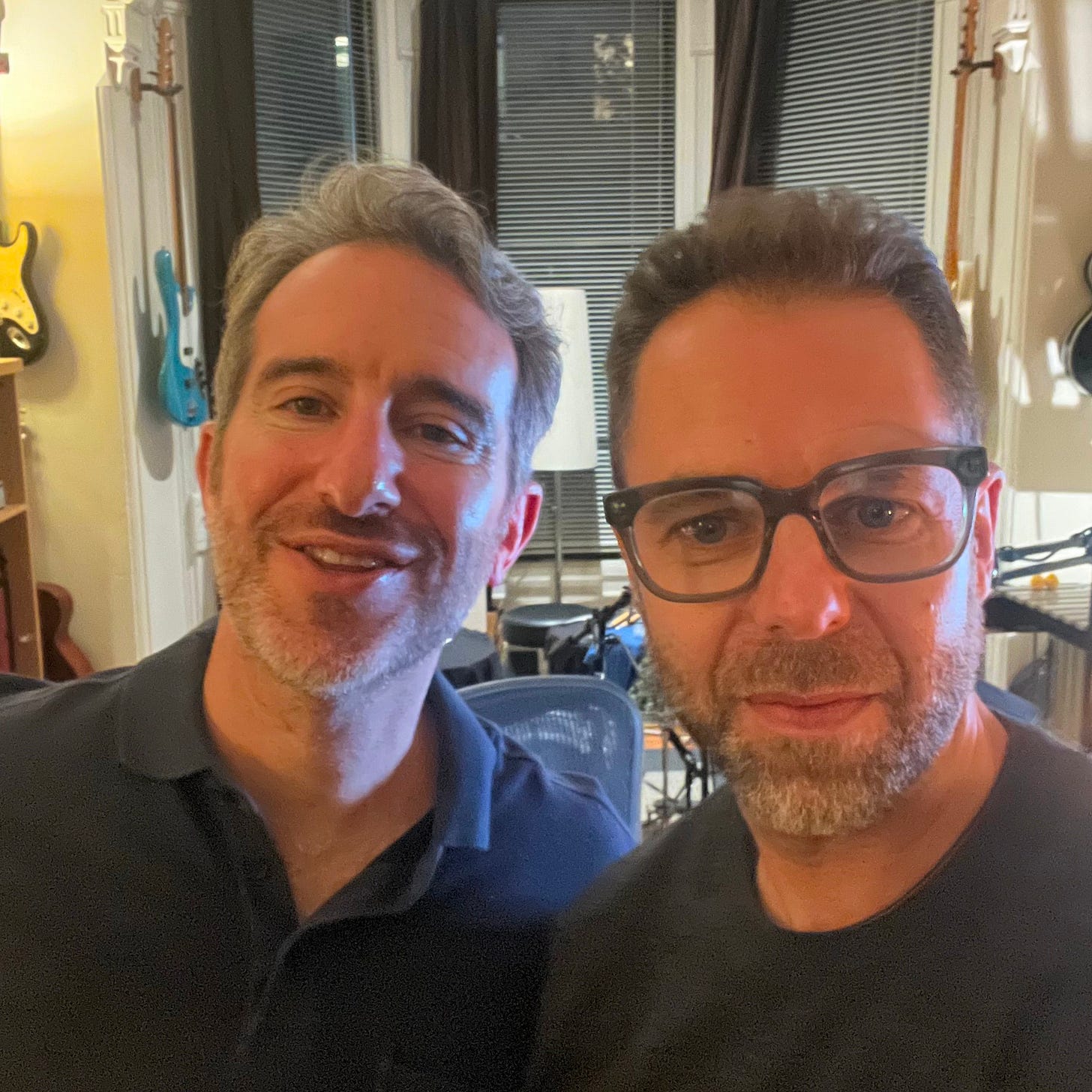"It's impossible to separate jazz from the civil rights movement."
Pianist Aaron Goldberg on 20 years of organizing jazz fundraisers for presidential campaigns, the potential of music to provoke personal transformation and political action.
“It's impossible to separate music from the civil rights movement. Jazz music in particular. So how did we get so disconnected that musicians - profoundly great, brilliant musicians - could be proud of the fact that they're ‘above’ the system? Like we are not engaged and proud to not engage with this.” - Aaron Goldberg
After the election of George W. Bush in 2000, Aaron Goldberg began wondering what he could do in the next election to help make a difference. At the time, he was a 26 year old piano player only a few years out of college, but who was quickly establishing himself as a credible musical voice in the jazz world, and a musician who is dedicated to helping move people in multiple senses of the word.
Aaron was raised outside of Boston. He began playing piano at a young age, got interested in jazz almost immediately, and moved to New York at age 17 to study at the New School.
But he also came from a rather traditional family with traditional ideas about higher education, and he was equally at home in academia as he was on the bandstand. All of this led him to leave New York and ultimately get a degree from Harvard University in history and science.
After he graduated he moved back to New York to pursue his music career in earnest and began working regularly with Mark Turner and Joshua Redman with whom he had a lengthy association. He’s made a large handful of fantastic albums as a leader and co-leads a project called Yes Trio with drummer Ali Jackson and bassist Omer Avital. Their most recent album Spring Sings came out earlier this year.
Aaron has worked as an in demand sideman with a long list of legendary artists and was once described in the New York times as "a post-bop pianist of exemplary taste and range”.
But in the midst of all that musical momentum he managed to get a master's degree in Analytic Philosophy from Tufts University, commuting from New York to Boston for classes, and juggling performances with Wynton Marsalis, Kurt Rosenwinkel, and his own bands.
So from the very beginning Aaron’s theoretical brain and his musical heart have been commingling, and that is made immediately clear in any conversation with him. “I chose to play this music because it was just something that moved me with a beauty that I didn't understand when I first encountered it,” he tells me.
“It was also the hardest thing I'd ever tried to do in my life. Harder than my academic or educational demands that were placed on me in other areas,” he continues.
“I got kind of pulled into the possibility of whether I could ever do this on a high enough level that I could make something beautiful, contribute some beauty to this tradition. And then once I got to the level where I could actually play with people and, and make a living at it, I got pulled into that visceral experience of being part of something larger than myself and contributing something that was more than the sum of the parts.”
And while the music had first reached him on an emotional level, he was deeply aware of the political and protest roots of jazz. “It was protest music, an assertion of common humanity and an aspiration to express the genius of people that are treated as second class citizens,” he says.
As the 2004 election approached, it was clear that George W. Bush stood a very real chance of being elected for a second term. Aaron was outraged by the “incompetence and the immorality of the entire administration” and he was surprised by conversations he had with his peers in the jazz community who seemed to have disengaged from the political process.
“It's impossible to separate music from the civil rights movement. Jazz music in particular,” he explains. “So how did we get so disconnected that musicians - profoundly great, brilliant musicians - could be proud of the fact that they're ‘above’ the system? Like we are not engaged and proud to not engage with this.”
He started to think of what he could do that would be bigger, that would help to bring people together and to try to reorient them, “to be proud, not of being detached but of engaging in the messy details.”
This profound concern about both the election and the political conversations in his own music community inspired him to organize Jazz for America's Future, a fundraising concert for John Kerry in 2004 which featured performances by Michael Brecker, Savion Glover, Christian McBride, Jeff Tain Watts, Joshua Redman, and DeeDee Bridgewater, among others.
He has organized a similar event in every presidential cycle since 2004. Over the course of two decades, he came to see how his experience as an improvising musician helped to prepare him to be a curator and concert presenter. “You make these decisions, just like on the bandstand, you're making quick decisions in an intuitive way, but you're trusting that your intuition is actually taking into account a lot of factors that you're not actually consciously in touch with,” he says.
This year’s Jazz for Kamala concert was held at Le Poisson Rouge in New York on Sunday, October 20 (conveniently and coincidentally the 60th birthday of Kamala Harris). Performers included Kenny Barron, Al Foster, Jeff Tain Watts, Ron Carter, Joe Lovano, Joshua Redman, Dee Dee Bridgewater, Christian McBride and Aaron Goldberg himself, among others. The event raised $42,000 and donations can still be made through the website.
“One easily demonstrable way that we can use our music to move people into doing something to try to make our world better is to invite them to a fundraising concert for a politician who we think is the better of the available options in a given election.”
We spoke the following day (as of this writing, that was yesterday) to talk about how he thinks about the potential of music to provoke personal transformation and political action, his own relationship with activism and progressive politics, public education, concert curation, Israel and Gaza.








